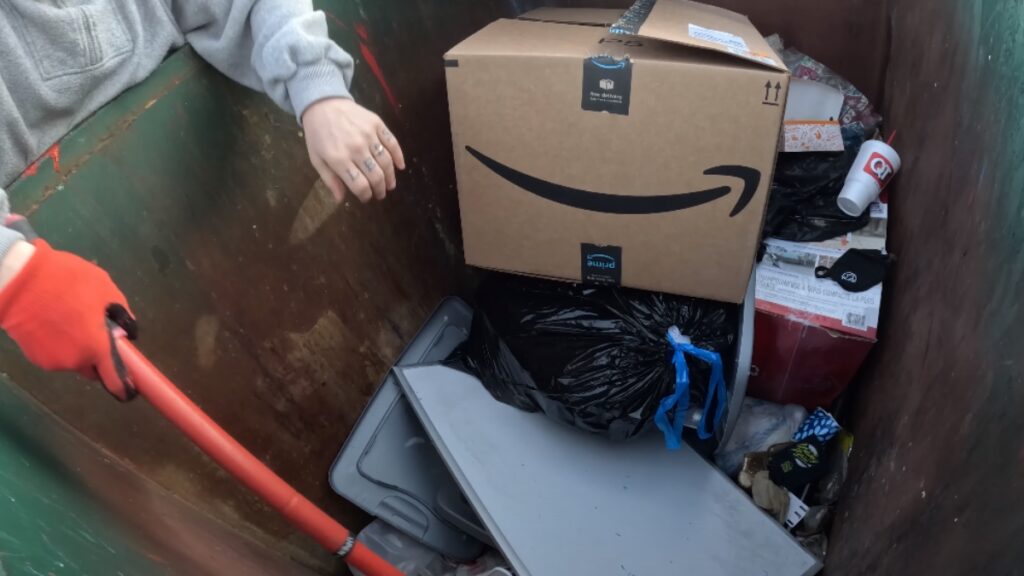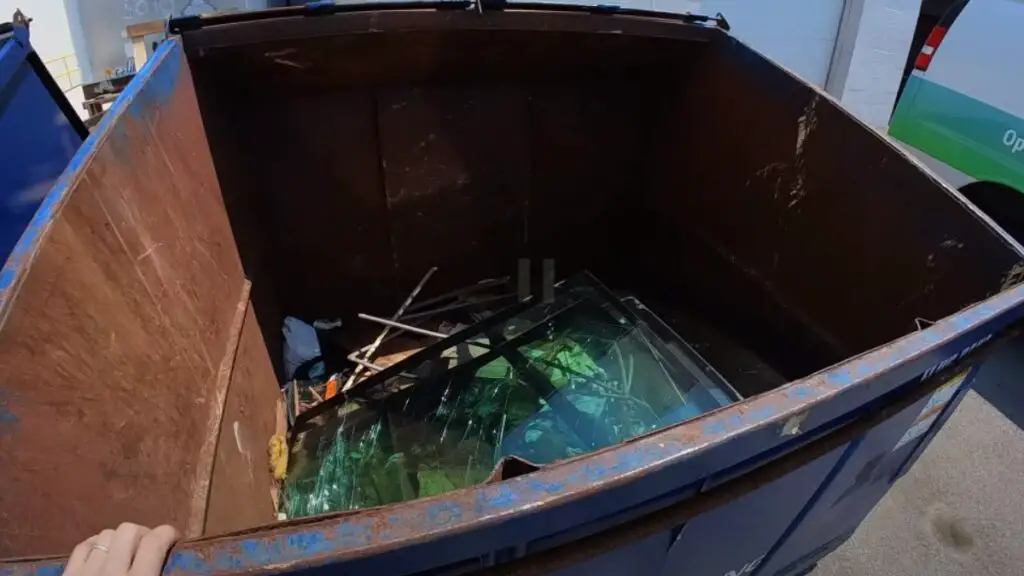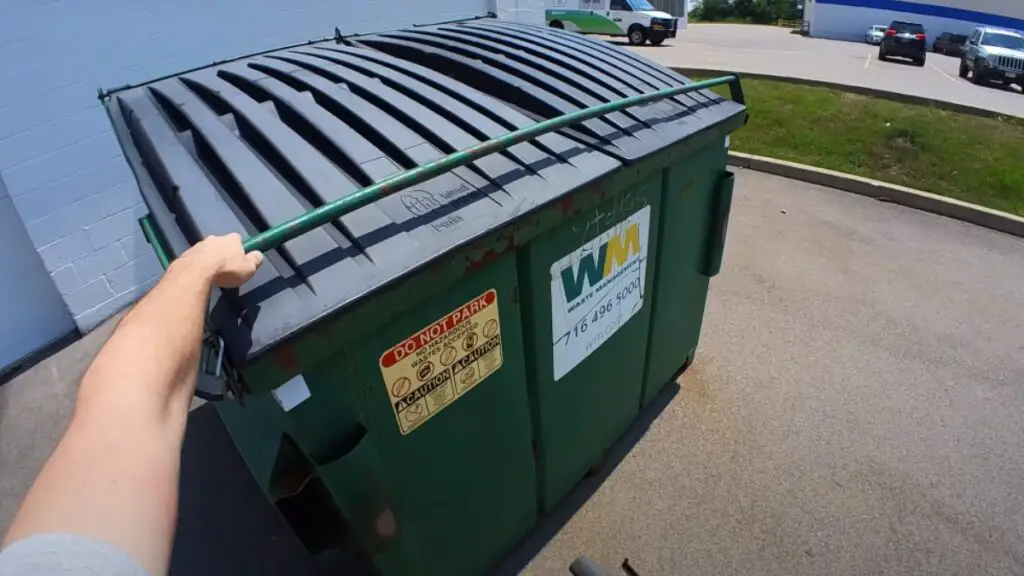If you’re a dumpster diver and looking to dive into the whole store or any other retail store, then you have come to the right place.
In this article, we will dive into the legality and all of the other factors to make your dive successful at Whole Foods.
Moreover, we will also explore the restock schedule and the best time to dive at Whole Foods.
Dumpster Diving at Whole Foods

Whole Foods Market is a popular American supermarket chain recognized for its focus on selling products free from hydrogenated fats, artificial colours, and flavours.
Known for its commitment to high-quality whole foods and sustainable farming, the company is a go-to destination for health-conscious consumers.
Whole Foods Market also champions organic farming methods, striving to increase demand for products that are environmentally friendly and free from harmful pesticides.
Particularly at stores like Whole Foods, known for their commitment to quality and freshness, the dumpsters can seem like a treasure trove.
However, it’s essential to view this phenomenon in the context of the broader issue of food waste.
According to the Food and Agriculture Organization of the United Nations, approximately 1.3 billion tons of food is wasted globally each year.
This represents about a third of all food produced for human consumption.
In the United States alone, the USDA estimates that around 30-40% of the food supply ends up as waste, approximately 133 billion pounds and worth around $161 billion.
Is It Illegal To Dumpster Dive at Whole Foods?
In the United States, the 1988 case of California v. Greenwood established that there is no expectation of privacy for discarded materials.
However, this doesn’t necessarily make dumpster diving legal everywhere.
Individual states, cities, and businesses like Whole Foods can enforce their own restrictions.
For example, if a dumpster is on private property, accessing it without permission could be considered trespassing.
As of now, Whole Foods, which operates over 500 stores in North America and the U.K., doesn’t have a publicly stated policy on dumpster diving.
However, it’s worth noting that Whole Foods has a robust food donation program, contributing to food banks to minimize waste.
What Is The Best Time To Dumpster Dive at Whole Foods?
Whole Foods, being a premium grocery store, often disposes of high-quality food items nearing their sell-by dates.
The best time to dumpster dive at Whole Foods is typically after closing, which for most locations is around 10 PM.
However, the exact timing can vary based on store policies and local regulations.
Many experienced dumpster divers recommend checking multiple times throughout the week since disposal schedules can shift based on inventory and sales.
Which Day Did Whole Foods Restocks?
Whole Foods Market typically restocks its shelves throughout the week based on the store’s needs and product availability.
However, according to several employees’ insights from various locations, a significant restocking appears to take place early in the week, typically on Mondays or Tuesdays.
This is because many Whole Foods suppliers make their deliveries at the start of the week, ensuring that products are as fresh as possible.
However, the exact day can vary depending on factors such as the specific location of the store, delivery schedules, and product demand.
It’s always a good idea to call your local Whole Foods Market to get the most accurate information.
What to look for while dumpster diving at Whole Foods?
Dumpster diving at supermarkets like Whole Foods may seem unconventional, but if done correctly, it can yield a surprising amount of usable goods.
Conducting a thorough investigation is key. First, pay attention to the quality of the items.
Whole Foods is known for its high-quality produce, and often, items are discarded simply because they don’t meet aesthetic standards.
For example, around 20% of the fruits and vegetables grown in the U.S. don’t meet retail standards, typically for cosmetic reasons, and end up in dumpsters.
Second, take into account the freshness of the items. Supermarkets typically follow “sell-by” dates, which are often conservative estimates.
Many food items are safe to consume past their sell-by dates. According to a report by the Natural Resources Defense Council, a shocking 40% of the food in the U.S. goes uneaten.
Third, be mindful of the temperature and weather conditions. If the temperature is below 40 degrees Fahrenheit or above 90 degrees Fahrenheit, certain items like dairy products and meat may not be safe to consume.
Here is the list of things to look for while diving:
- Fresh Produce
- Bakery Items
- Packaged Salads
- Prepared Meals
- Dairy Products
- Deli Items
- Floral Arrangements
- Organic Snacks
- Beverages
- Health and Beauty Products
- Overstocked Non-Perishable Goods
- Seasonal Items
- Specialty Cheeses
- Vegan and Vegetarian Options
- Gluten-Free Products
Does Whole Foods Throw Away Food?
Whole Foods, like many other grocery chains, has policies in place to avoid unnecessary food waste.
According to a report by the Food and Agriculture Organization of the United Nations, nearly one-third of the food produced in the world for human consumption gets lost or wasted every year.
To combat this, Whole Foods has implemented a program called “Whole Foods Market Food Donation Program”.
Through this initiative, stores donate unsold yet wholesome food to local food banks and shelters to help feed people in need rather than disposing of it.
In 2019 alone, Whole Foods reported that they donated over 5 million meals worth of food to those in need.
Moreover, for products that can’t be donated, Whole Foods partners with local farmers for composting or animal feed, thus ensuring that a minimal amount of food ends up in landfills.
Does Whole Foods Throw Away Returns?
Whole Foods, being a reputable grocery chain, is highly committed to minimizing food waste and ensuring customer satisfaction.
When it comes to returns, the policy is largely dependent on the specific type of product and its condition.
Perishable items like fresh produce, dairy, and meat are typically discarded after being returned due to health and safety regulations.
The USDA estimates that supermarkets dispose of about 43 billion pounds of food each year, which constitutes around 10% of the total retail food supply.
However, Whole Foods has been pioneering initiatives to reduce this figure, such as donating to food banks and composting.
Non-perishable goods in good condition are, where possible, returned to inventory.
This nuanced approach to handling returned items underscores Whole Foods’ dedication to balancing consumer safety, waste reduction, and customer service.
So, if you are planning to dumpster diving at Ace Hardware, Harbor Freight, Advance Auto Parts, or Menards; first you should check the state laws before going to your hunt.
How Much Can You Make From Dumpster Diving at Whole Foods?
While it’s a little challenging to quantify exactly how much one can make dumpster diving at Whole Foods or any supermarket, some factors can give us an estimate.
In a 2016 Vice News interview, Matt Malone, a professional dumpster diver, stated that he could make around $2,500 a month from retail outlets, including grocery stores.
He once found a load of fancy chocolates worth about $1,000 that Whole Foods had dumped because the boxes were damaged.
However, it’s important to remember that the ‘earnings’ from dumpster diving can greatly vary based on location, timing, and the store’s wastage practices.
Dumpster diving can provide a source of income for those who are willing to take the risk and spend time sifting through trash.
However, it’s not just about financial gain. Many people have taken up dumpster diving as a way to reduce waste and live a more sustainable lifestyle.

Frederick Perez is the founder of Scrape Dude. He loves exploring and finding hidden treasures in unexpected places. Frederick has been dumpster diving and gold panning for years, turning his hobby into our website to share his adventures. He’s known for his friendly advice and exciting stories, inspiring others to discover the joy in these unique hobbies. His expertise makes Scrape Dude a trusted and fun place to learn and explore.


